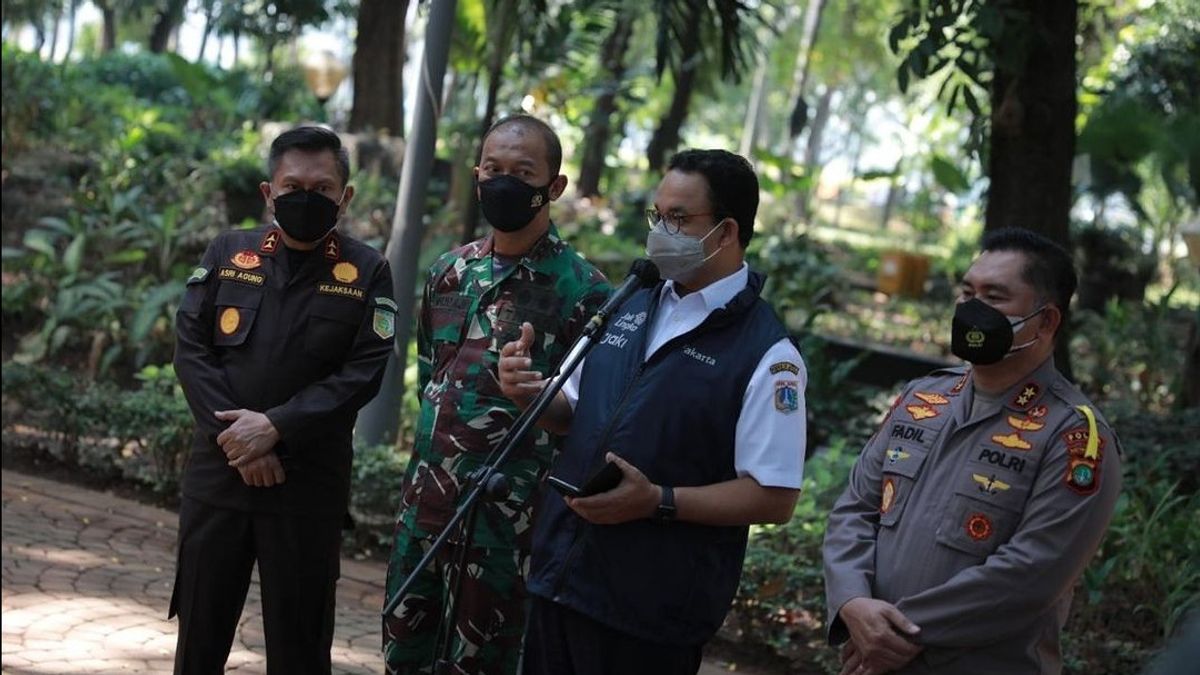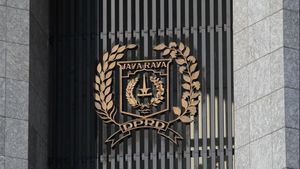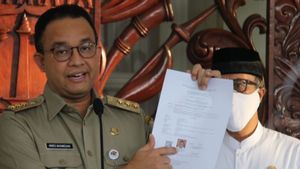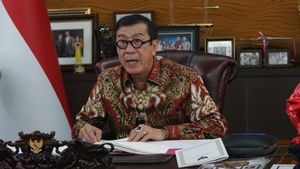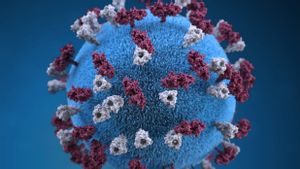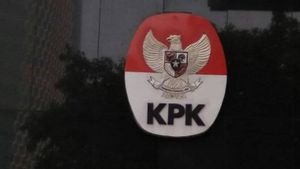This is stated in the proposed draft amendment to Regional Regulation Number 2 of 2020 concerning COVID-19 Management.
In the draft regional regulation amendment, Anies added two articles between Articles 32 and 33, namely Articles 32A and 32B. This article adds a criminal threat.
He explained, if there are violators who repeat the act of not wearing a mask after being given social and administrative work sanctions, they will be sentenced to a maximum of three months in prison or a maximum fine of Rp500,000.
Furthermore, for business actors such as offices, industry, hotels, transportation, and restaurants who repeat acts of violating health protocols and have received a license revocation, they will be sentenced to a maximum imprisonment of three months or a maximum fine of Rp50,000,000.
In reading the speech at the plenary meeting with the DPRD, Anies viewed that the provision of criminal sanctions was needed as legal protection for the DKI Provincial Government to provide public health protection from the spread of COVID-19.
Unfortunately, Anies views that the administrative sanctions that are currently in effect have not been effective in providing a deterrent effect to people who violate health protocols.
"The regulation of several criminal provisions is regulated with an ultimum remidium. The ultimum remidium principle is applied when administrative sanctions do not cause a deterrent effect for violators of health protocols.
"We can see for ourselves that administrative sanctions have not been able to tap people's hearts in implementing the COVID-19 prevention protocol," Anies said in a speech read by DKI Deputy Governor Ahmad Riza Patria at the DKI DPRD Building, Wednesday, July 21.
SEE ALSO:
Anies emphasized that criminal sanctions will be imposed if they have committed repeated violations. That is, the punishment for anyone who repeats the act of not wearing a mask is carried out after he has been subject to sanctions in the form of social work or administrative fines.
Meanwhile, punishment for certain legal subjects who repeat acts of violating health protocols is carried out after being subject to sanctions for revocation of business licenses.
"The criminal offense of this violation is constructed for people who repeat it after the person concerned has been subjected to administrative sanctions," he said.
Anies hopes that this criminal sanction if it is approved by the DPRD, can make the community increase discipline in the COVID-19 prevention protocol in the midst of high cases.
"People must understand that when they ignore health protocols, law enforcement in the form of criminal sanctions will wait," he said.
He also hopes that the imposition of criminal sanctions will be carried out in accordance with the principles of justice. "Law enforcement is not carried out sharply downwards, bluntly upwards. Once again, the enforcement of this process is one of our joint efforts in completing the COVID-19 response," he explained.
In addition to adding criminal sanctions, Anies also inserted one article between Articles 28 and 29, namely Article 28A. This article contains rules regarding the investigation of violators of the PPKM provisions. In addition to the article, Anies wants DKI State Civil Apparatus (ASN) such as the Satpol PP to have the authority as investigators.
This means that this investigator is authorized to receive reports, conduct examinations, ask for information and evidence, examine the identification of people suspected of violating the rules, take fingerprints, take pictures and provide the results of investigations to the police and district courts for criminal penalties.
The English, Chinese, Japanese, Arabic, and French versions are automatically generated by the AI. So there may still be inaccuracies in translating, please always see Indonesian as our main language. (system supported by DigitalSiber.id)
